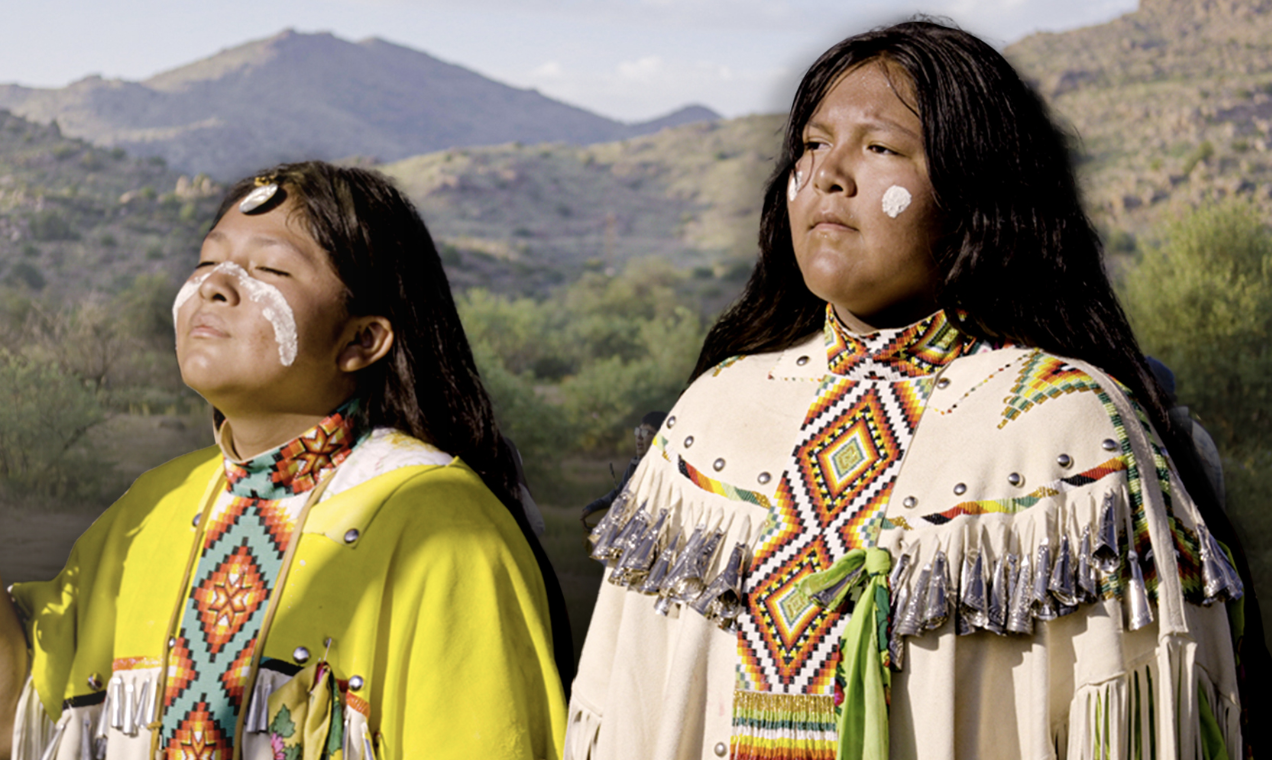
- Details
- By Native News Online Staff
The Trump administration announced today that it is moving forward with plans to transfer a sacred Native American site to a multinational mining corporation within as few as 60 days—despite an ongoing federal lawsuit challenging the legality of the move. In Apache Stronghold v. United States, the group Apache Stronghold—a coalition of Apaches, other Native communities, and allies—has sued to stop the transfer of Oak Flat to Resolution Copper, a mining company owned by a Chinese parent corporation.
If allowed to proceed, the project would turn the sacred site into a massive open-pit mine, permanently halting Apache religious ceremonies held there. (Watch this short video to learn more.) The government has stated it will proceed with the land transfer even as the case is under review by the U.S. Supreme Court.
For generations, Western Apaches and other Native peoples have gathered at Oak Flat—known in Apache as Chi’chil Biłdagoteel—located near present-day Superior, Arizona, to conduct sacred ceremonies that cannot be performed anywhere else. Oak Flat is listed on the National Register of Historic Places and has long been shielded from mining and other destructive activities. Those protections came under threat in December 2014, when a last-minute provision tucked into a must-pass defense bill authorized the land’s transfer to Resolution Copper. The company now plans to convert the site into a crater two miles wide and over 1,100 feet deep. Resolution Copper’s majority owner, Rio Tinto, drew international condemnation in 2020 when it deliberately destroyed 46,000-year-old Indigenous rock shelters at one of Australia’s most culturally significant sites.
“The U.S. government is rushing to give away our spiritual home before the courts can even rule—just like it’s rushed to erase Native people for generations,” Dr. Wendsler Nosie Sr. of Apache Stronghold said. “This is the same violent pattern we have seen for centuries. We urge the Supreme Court to protect our spiritual lifeblood and give our sacred site the same protection given to the holiest churches, mosques, and synagogues throughout this country.”
Apache Stronghold filed this lawsuit in January 2021 in an effort to stop the proposed mine at Oak Flat. The project faces widespread opposition—not only from 21 of the 22 federally recognized tribal nations in Arizona, but also from the National Congress of American Indians, a broad coalition of religious groups, civil rights organizations, and legal scholars. Public sentiment mirrors this resistance: national polls show that 74% of Americans support protecting Oak Flat. Despite this, the Ninth Circuit Court of Appeals ruled 6-5 last year that the land transfer does not violate federal religious freedom laws. In a powerful dissent, five judges argued that the court “tragically err[ed]” in failing to safeguard this sacred site.
“The feds are barreling ahead to give Oak Flat to Resolution Copper, even as the Supreme Court considers whether to hear the case,” said Luke Goodrich, vice president and senior counsel at Becket. “This makes the stakes crystal clear: if the Court doesn’t act now, Oak Flat could be transferred and destroyed before justice can be served.”
More Stories Like This
50 Years of Self-Determination: How a Landmark Act Empowered Tribal Sovereignty and Transformed Federal-Tribal Relations“Our Sovereignty Is Not Optional”: Tulalip Responds to ICE Actions
Denied Trip to Alcatraz, Leonard Peltier Tells Sunrise Gathering: “My Heart Is Full”
‘Meet your prayer halfway’ | Women-Led Bison Harvests Bring Tribal Food Sovereignty
San Manuel Tribe Reclaims Ancestral Name, Faces Vandalism on Holiday
Help us defend tribal sovereignty.
At Native News Online, our mission is rooted in telling the stories that strengthen sovereignty and uplift Indigenous voices — not just at year’s end, but every single day.
Because of your generosity last year, we were able to keep our reporters on the ground in tribal communities, at national gatherings and in the halls of Congress — covering the issues that matter most to Indian Country: sovereignty, culture, education, health and economic opportunity.
That support sustained us through a tough year in 2025. Now, as we look to the year ahead, we need your help right now to ensure warrior journalism remains strong — reporting that defends tribal sovereignty, amplifies Native truth, and holds power accountable.
 The stakes couldn't be higher. Your support keeps Native voices heard, Native stories told and Native sovereignty defended.
The stakes couldn't be higher. Your support keeps Native voices heard, Native stories told and Native sovereignty defended.
Stand with Warrior Journalism today.
Levi Rickert (Potawatomi), Editor & Publisher


